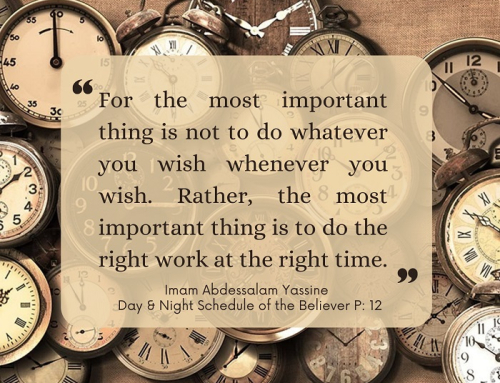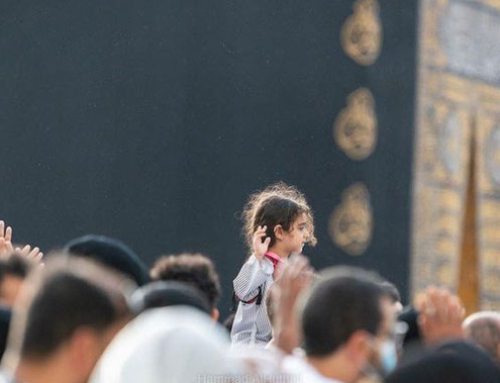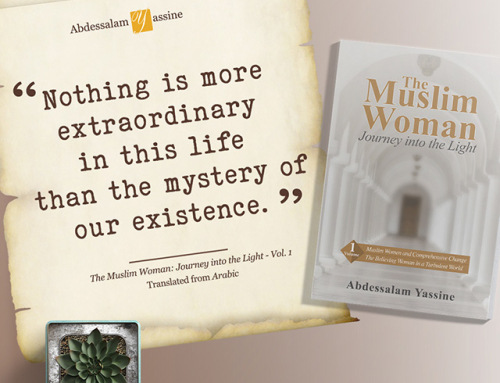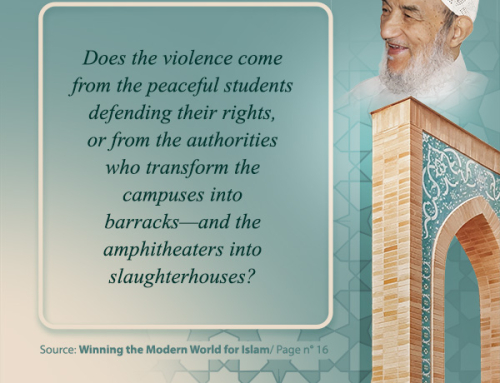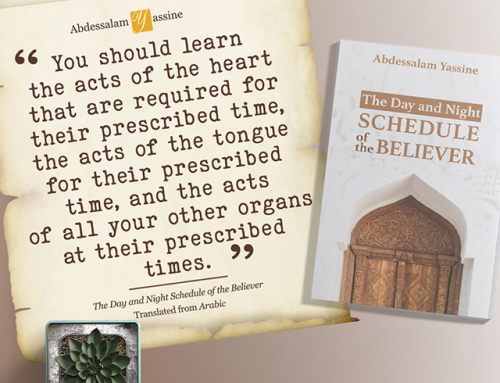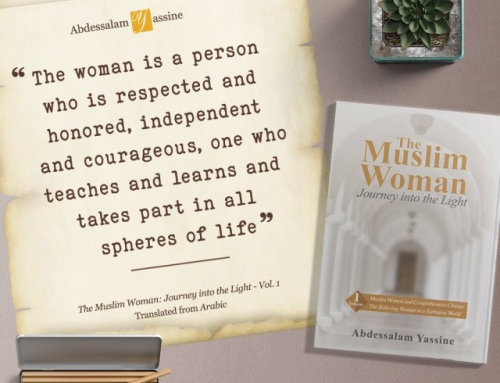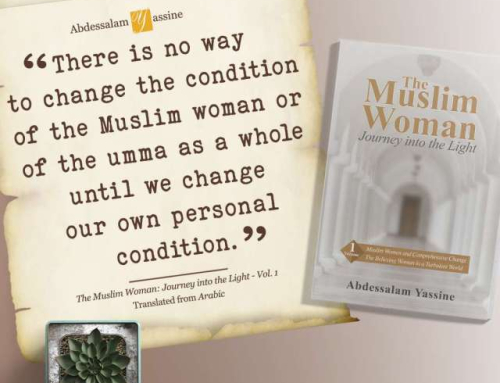Abdessalam Yassine
August 31, 2023
The Believing Woman and Consumerist Society
Among the most difficult obstacles that waylay the believing women in their jihād to achieve greater īmān are consumerism and extravagance – the distinctive features of this age. Mutual rivalry between women and men, mutual boasting, and the love of display reflect an inward worship of the bounties of this world. In a society full of decadence, corruption, and falsehood, the woman inevitably prompts her husband to take bribes, incur enormous debts, or outright steal, with the result that, at the end of the day, men and women all together find themselves in a fine mess!
It is very hard to wean women and men off so rooted a habit and so widespread a disaster. It is perhaps even harder to persuade some women and men who are at the other extreme and believe that the Lord (Exalted is He) will not be content with them until they follow the Sunna to the letter: hence, no mattresses other than a straw mat that leaves marks on the skin, and no furniture other than a few leather pillows! Some of our women, in their repentance, turn to preachers who tout Islam as a dīn of nothing but prohibitions, restrictions, and hardships. They trust in such preachers and resign from the duty of ijtihād and of seeking the counsel of competent Muslim scholars. Hence, they end up putting unnecessary constraints on themselves and wear nothing but black rags and ghastly veils.
By mentioning the Prophet’s straw mat, my intention was merely to promote disinterestedness in the vanities of this world and to remind ourselves that racing after consumerist “happiness” only causes wills to regress, hearts to perish, and īmān to die out. At the same time, we should not try to impose an excessively ascetic lifestyle on the rest of society. Understanding this balance is of paramount importance for Islamic jurisprudence, since the most frequent cause of quarreling between men and women is the husband’s financial maintenance of the family’s costs of living. Hence, God’s Messenger (God bless him and grant him peace) would become angry whenever his wives asked him for expensive comforts which he would not accept in his house.
This balance is difficult to achieve for jurisprudence because the global environment is one of prolific production, selling, marketing, and advertising. And there are indeed limits beyond which the efforts of the individual woman or of the Islamic state simply cannot go.
On the other hand, poverty, an unfair distribution of wealth, and class inequality have to be dealt with. Therefore, the general jihād of politics and the private jihād of the believing women and men ought to make the connection between the unfair distribution of wealth and the consumerist habits that cause a minority to live above the umma’s means while the majority live in abject poverty. The issue is global. In the world, there is a rich North and a poor South, with each country in turn having its own internal North and South.
It is quite hard to formulate a universal principle that captures this balance. We have seen how ‹Umar wanted for the Prophet (God bless him and grant him peace) and the Muslim community the same comfort and well-being which the Persians and the Romans enjoyed. Now ‹Umar Ibn al-Khaṭṭāb was no ordinary Muslim: he had emigrated from Mecca, leaving behind all his belongings, houses, and family. The Prophet himself (God bless him and grant him peace) gave him his moral and spiritual education. He was a paragon of virtue: when he became Commander of the Believers, his only dress had thirteen patches on it. In the year of epidemic and famine, he forbade himself meat so as to not favor himself to the detriment of the Muslims. The only thing harder than grasping this balance is trying to motivate people to take the pathway of discipline and not that of indulgence. May God grant us power and might to surmount such obstacles!
Environment influences lifestyle habits even as it influences moral standards. A good environment begins with the believing women and men using moral pressure to build and perfect the rectitude demanded by Islamic Law.
Muslim Women; Journey into the Light – Volume2, P 37-39.









